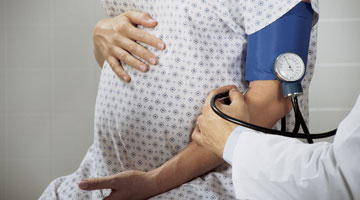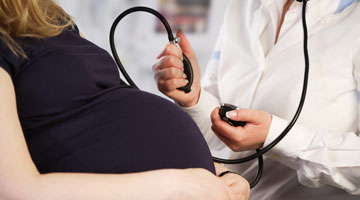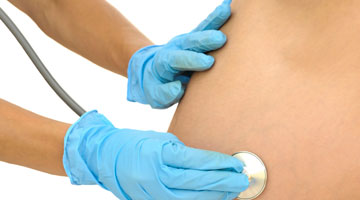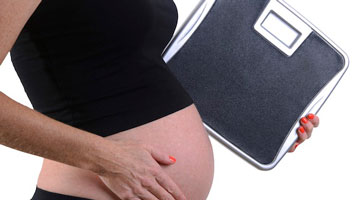Pregnancy Weight Gain
Weight Gain During Pregnancy
Weight gain is a ubiquitous reality of pregnancy. You’re pregnant, and that means you’re supposed to gain weight. However, it is still important to know how much weight to gain and when to gain it. Too much weight gain increases your chances of gestational diabetes, hypertension, and complications during labor. Too little weight gain puts you at an increased risk for early labor and delivery. A woman who is average weight before getting pregnant should gain 25 to 35 pounds after becoming pregnant. Underweight women should gain 28 to 40 pounds. And overweight women may need to gain only 15 to 25 pounds during pregnancy.
“The recommended weight gain during pregnancy depends on various factors, most importantly, how much you weighed before you got pregnant,” explains Dr. Shamsah Amersi, a Board Certified physician in Obstetrics and Gynecology.
Body Changes During Pregnancy
“During pregnancy, your body changes dramatically,” says Dr. Amersi, “Your abdomen will increase as they baby grows, and your breasts will also increase with
... Read more
the hormonal changes. There are, however, many other changes that you can expect. Your hair will grow, but not just on your head, on all different parts of your body. You may have beautiful, lustrous hair on your head, but then you may also start noticing the stray, annoying hairs on other parts of the body that you didn't normally have. While some patients experience the glow of pregnancy, others struggle with acne, a darkening of the nipple area, and their nipples becoming larger. In addition, you may notice a line going up and down your abdomen called the linea nigra, which is from the hormone changes. Some patients may experience larger feet, swelling in their feet from the pregnancy changes. Body aches and pains are so common, especially in the pelvic area. Stretch marks happen as the baby grows, and this depends on genetic predispositions as well as the rapid weight gain that you experience. Finally, there are other changes; heartburn, gas, constipation, hemorrhoids, lots of other not so fun stuff. Hang in there.”
Risks of overweight and obesity in pregnancy
If you’re overweight or obese during pregnancy, you’re more likely to have these complications:
- High blood pressure, preeclampsia, or blood clotting problems
- Gestational diabetes
- Cesarean birth (c-section)
- Miscarriage or stillbirth
If you’re obese, you’re more likely to have other complications, including:
- Infection during pregnancy, such as urinary tract infections
- Sleep apnea
- Venous thromboembolism (blood clotting problem)
- Increased need to induce labor
- Increased length of labor
- Problems with breastfeeding
If you are overweight or obese during pregnancy, your baby is more likely to have the following conditions:
- Premature birth
- Birth defects, including neural tube defects or NTDs
- Macrosomia, also called LGA or large for gestational age
- Diabetes, heart disease, or obesity later in life
How to Avoid Excessive Pregnancy Weight Gain
If possible, the best way to avoid excessive weight gain during pregnancy is to start your pregnancy at a healthy weight. Obviously, this is difficult to achieve with unplanned pregnancies, however, if you are actively trying to get pregnant then it is important to be aware of your health and exercise.
“Remember, you only need 300 to 500 calories a day, extra calories a day, during your pregnancy. And that translate into one to two snacks, so don’t go overboard,” says Ling Wong, a holistic nutrition and wellness coach specializing in preconception wellness and pre/post-natal health, “Eating for two doesn’t mean taking in the calorie for two people. So if you eat wholesome and nutritious food and your body is getting all the nutrients that it needs, you will not be craving, you know, you will not be having a lot of craving and you will not be eating the number of calories more than your body needs to grow the baby. On the other hand, if you eat processed junk food that is devoid of nutrients, you’ll body will need… still asking you for the nutrients and you will develop cravings. So remember, try to eat wholesome, fresh food as much as possible. And don’t forget about exercise and especially weight bearing and resistance training, because as you build muscles, muscles burn more calories than fat.”
If weight is a problem and your doctor is advising you to watch your diet, read more about Ketogenic diet or Low-carbohydrate diet.
Our Top Experts
For more information on maintaining a healthy weight during your pregnancy from the top experts, visit kidsinthehouse.com.






















